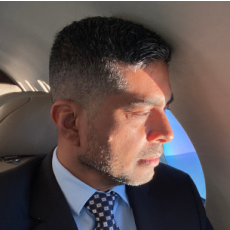Icarus Jet is an aircraft management and trip support company founded in 2010 and based in Dallas, Texas. Focussed on executive charter travel needs, it aims to reduce the operating cost of aircraft ownership by 3% to 7%.
What was it about the experience of being a former commercial pilot that led you to start your own company Icarus Jet in 2011?
As a corporate pilot, I never had anything else to fall back on so I needed a plan B. Flying all around the globe—especially to Africa, China, Russia, and India—I gained knowledge on how to get permits, secure the cheapest fuel, obtain necessary data from airports, and navigate the safest routes. This was around 2005 when smartphones weren't prevalent, and information wasn't readily available. I often thought about what I could do if something happened to my health and I couldn't pass the medical exams required for flying.
I realized I could solve problems related to private aircraft logistics, including sales, background checks, fuel procurement, and obtaining permits. This led me to start the company so I could still be involved in aviation in a managerial role. Starting Icarus Jet allowed me to stay connected to the industry without having to retrain in a completely new field.
The industry is experiencing a severe pilot shortage, partly due to increased demand. From your experience training as a pilot, what are the main reasons for this growing problem?
There are no standardized colleges for becoming a pilot like there are for medicine or engineering. My generation's heroes were World War II pilots and aviators like Chuck Yeager, who inspired us to become pilots. Today, flying has changed dramatically. Pilots on low-cost carriers like Ryanair and EasyJet fly multiple legs daily, which is exhausting and doesn't offer the same allure. The image of pilots has shifted, and fewer people aspire to become one.
The shortage is real, and automation is taking over. Pilots are now more like automation managers than the stick-and-rudder pilots of the past. The glamor and respect once associated with being a pilot are fading. To address the shortage, we need to start promoting aviation careers in schools and colleges, making pilots heroes again. However, with automation advancements, the role of pilots is changing, making it a less attractive career for younger generations.
How can the industry overcome the external barriers to becoming a pilot, such as accessibility and cost?
For Asian or Middle Eastern students, even getting a visa to come to the West for flight school is a huge hurdle. The cost is another significant barrier; you need around $140,000 for a commercial pilot certificate, and that doesn't guarantee a job. You end up with a high school diploma and a commercial pilot's license but no college degree or experience. It's a challenging start. I had to wash aeroplanes for flight time and pay to fly freight jobs through all weather conditions.
Today's generation has better technology and situational awareness but lacks the drive to pursue aviation with the same intensity. The industry needs to provide scholarships and create clear pathways from flight school to airlines. However, the cyclical nature of the aviation industry makes it difficult for companies to invest in long-term training programs. Once the current hiring surge ends, layoffs will follow, leaving new pilots jobless.
How can individual companies like Icarus Jet work to address and resolve the growing workforce problem?
We've started an internship program where interns get 15 hours of flight time, which we pay for. We're a small company, but I wish more companies would do something similar. It doesn't have to be a full-flight school program, but even a small initiative can help. A scholarship or fund for aspiring pilots would be beneficial, allowing them to progress from flight school to an airline job if they have the aptitude.
The industry knows it's cyclical and often hesitates to invest in training because of the eventual downturns. But without such investments, the pilot shortage will continue. The industry needs a more stable and supportive infrastructure to train and retain pilots, especially during downturns.
Since 2011, Icarus Jet has widened its operations across three different continents. What are your ambitions for the company over the next two to five years?
My goal is to have all employees work from home. There's no reason for anyone to commute just to work on a laptop. We support our employees' fitness, health, and mental well-being, investing in humans rather than in artificial intelligence or data collection. We're taking a step back to offer what travel agents used to provide: personal, human service. For example, if a client is in trouble at 2 a.m. in Italy, they can call us, and we'll help them, even if it means making no profit.
We focus on developing our employees' well-being, from mental health to flight school funding for interns. Teaching values like diversity, equity, integrity, honesty, kindness, and empathy are our goals. Whether we become a hundred-billion-dollar company or not, our priority is to invest in people, not just technology.





